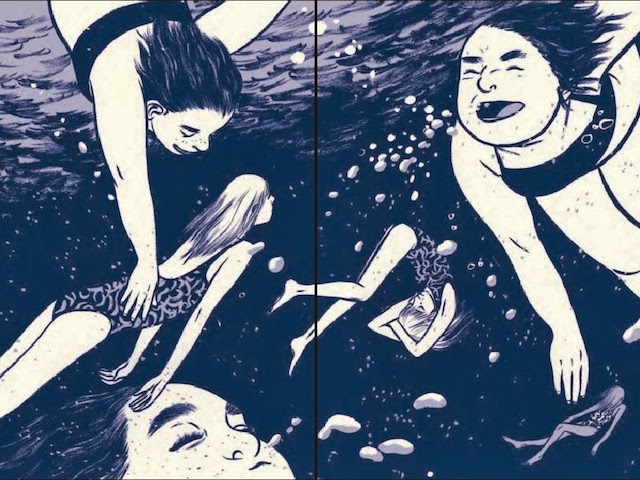

Steve: When you first start work on a new project, do you find that you start off focusing on the story, or focusing on characters, or both?

I was only making minis during that time.ĭuring one of my trips to New York to visit my boyfriend (who was attending SVA), we met for lunch and had been in touch on-and-off since that time. He had seen some of the illustrations that I had done for the New York Times Op-Ed––some of my first jobs ever after graduating art college––and thought my work seemed suited for comics. Before First Second even had a name or before we had published Skim or I’d moved to New York. Jillian: I’ve actually been in informal contact with Mark since around 2004. How did they come to be involved with the project? Steve: This marks, I believe your first work published through First Second. Even the landscape, you know? With the trees and the lake and the stars and everything. The rules are totally different because you’re not at school. It’s your vacation spot but it’s someone else’s every day. It’s not home, but you’re with your family. Plus the cottage is such an interesting space.

Mariko: I’ve always wanted to do a summer story. (Sept.Steve: What made you want to tell this specific story? What was it about the idea, or characters, which really struck you as something you wanted to explore? Agents: (for Jillian Tamaki) Steven Malk, Writers House (for Mariko Tamaki) Charlotte Sheedy, Charlotte Sheedy Literary Agency. Playful yet plaintive, this is an elegant study of young women caught between the comforts of the past and the promise of what comes next. It’s all brushed in alternating hues of almost-gold and melancholy blue, the nostalgic palette of an old Polaroid shot. Art (by Jillian) augments the mood via the scale of Manhattan-its museums and Uniqlo stores are rendered gargantuan compared to the girls, a visual metaphor for their youth. Readers, especially ones who’ve already come of age, will recognize the life-changing shifts and signals even when the characters don’t. For all the big emotions laid bare in the narrative, and all its wonderfully rendered teenage dialogue riddled with pseudo-profundities, the script (by Mariko) plays out subtle and naturalistically spare. But as Zoe, who is queer, flirts with free-spirited Fiona, fissures between the three friends form and slowly widen. The trio share a room at a hostel, eat greasy pizza, down shots at a dive bar, and take in the Met. Zoe and Dani have been good friends for years but attend separate universities they’re joined by Fiona, an art major who lives in Dani’s dorm. Set over the course of a few days in 2009, the adventure follows three Canadian college students spending their spring break in New York City. The Tamaki cousins ( This One Summer), winners of Eisner and Caldecott awards, reunite for a shrewd and wistful coming-of-age story that may be their best work yet.


 0 kommentar(er)
0 kommentar(er)
